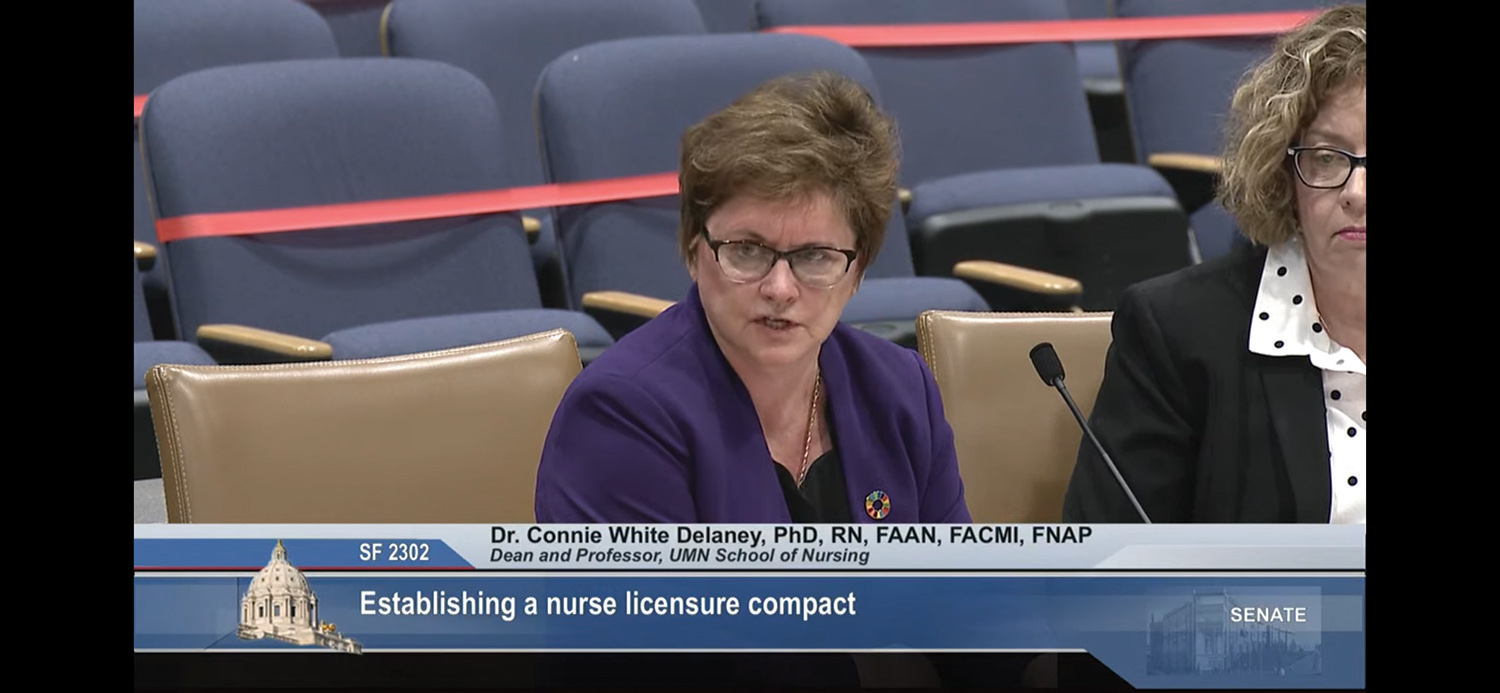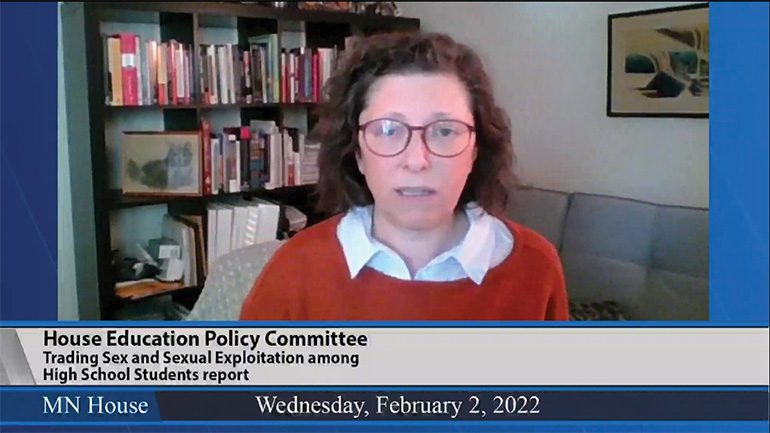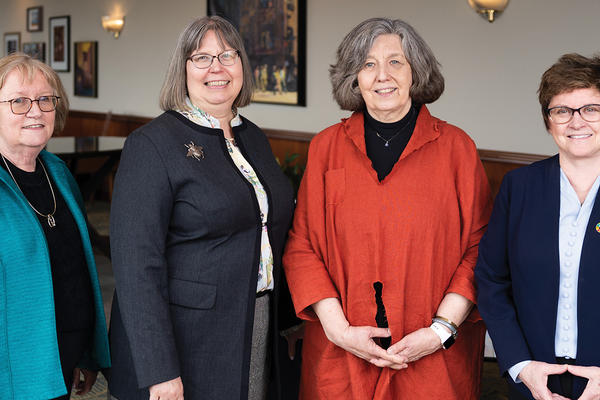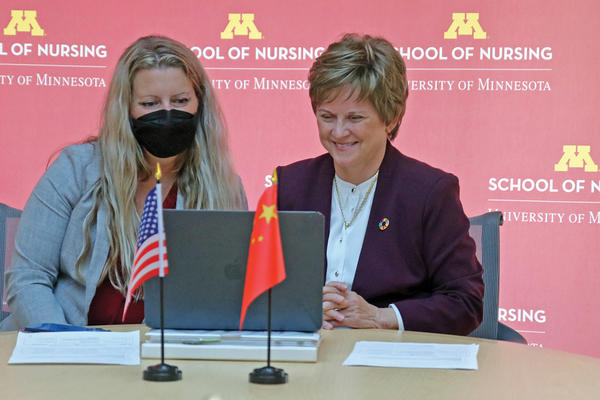Briefly
May 4, 2022

Dean Connie White Delaney
New collaboration between nursing, public health supports healthy aging
A new collaboration, the Clinical Science and Practice Core, between the School of Nursing’s Center for Aging Science and Clinical Innovation and the School of Public Health’s Center for Healthy Aging and Innovation was created to lead jointly-developed activities and objectives.
Faculty testify at house committee hearing
The Minnesota Youth Sex Trading (MYST) team, led by Associate Professor Lauren Martin, PhD, FNAP, and Associate Professor Barb McMorris, PhD, was invited to present research to the Minnesota House of Representatives Education Policy Committee. Martin and Nic Rider presented on behalf of the team, with other team members there to answer questions. They presented data from the Minnesota Student Survey on youth sex trading and mental health.

The MYST project uses actionable research to identify prevention opportunities, guide systems change and promote wellness among youth. The project is a collaborative of faculty, staff and students at the University of Minnesota working in partnership with non-profits, government entities and people with lived experience. For more than 15 years, members of the MYST team have translated research findings into tangible actions for policy and program development.
Dean testifies in support of Nurse Licensure Compact
Dean Connie White Delaney, PhD, RN, FAAN, FACMI, FNAP, provided testimony to the Minnesota Senate Health & Human Services Finance and Policy Committee in support of the Nurse Licensure Compact. The compact would allow Minnesota-licensed nurses to practice in the other 39 member states of the Nurse Licensure Compact and would allow nurses from other states in the compact to practice in Minnesota.
“While 39 other states have supported a modern, flexible, dynamic model of nurse licensure, the State of Minnesota is among those few states that still must function under a 100-year-old nurse licensure model that is not flexible, adaptable, nor nimble enough to address the needs of Minnesotans, our nursing education programs, and modern health care delivery,” Delaney testified.
She said the compact would not only assist in addressing the national nursing shortage but provide relief for the national nursing faculty shortage. When the school partners with clinical training sites in other states to provide clinical experiences for University of Minnesota students, the faculty who supervise them must be separately licensed in those states using a process that she said is slow, costly and inefficient.
BSN, MN, DNP programs re-accredited for 10 years
The Commission on Collegiate Nursing Education (CCNE) has re-accredited all of the University of Minnesota’s programs eligible for CCNE accreditation, including the school’s Bachelor of Science in Nursing, Master of Nursing, Doctor of Nursing Practice and post-graduate certificate programs. The programs were accredited for 10 years, which is the maximum period they can be re-accredited. “Achieving a 10 year re-accreditation for all of our academic programs is a testament to our faculty and staff’s commitment to excellence and student success,” says Christine Mueller, PhD, RN, FGSA, FAAN, senior executive associate dean for academic programs.


